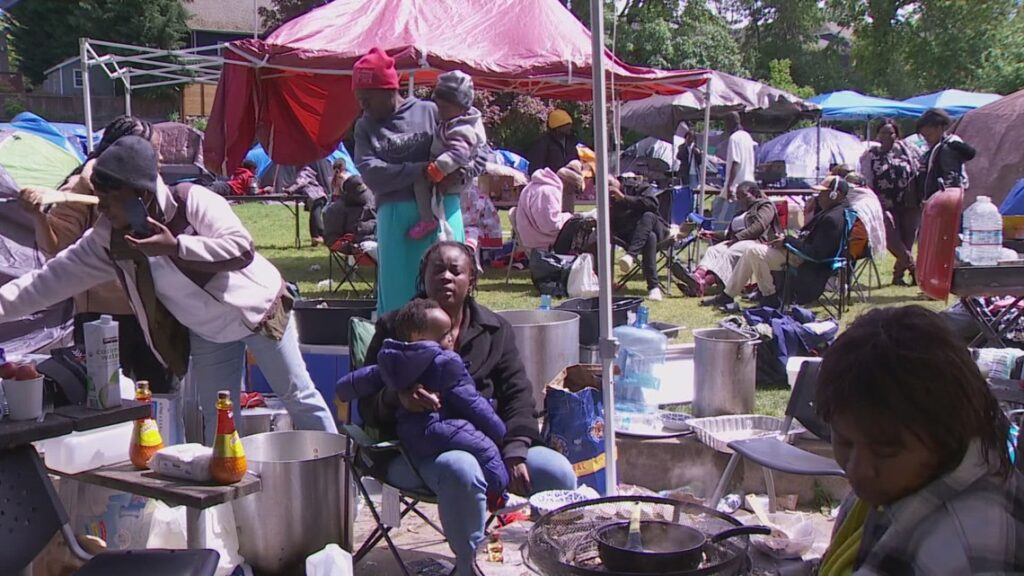Some asylum seekers from Venezuela and the Republic of Congo are living in tents in Powell-Barnett Park after being moved in and out of shelters and hotels.
SEATTLE — Asylum seekers have been living in Powell-Barnett Park in Seattle's Leschi community for a week.
Local residents say the encampment is a public health problem and are demanding action from Seattle's mayor.
KING 5 spoke with three women from Venezuela who lived in this park for a week.
The women said they needed shelter and clothing from the cold, and some were falling ill.
“Every day we see new families coming in and they don't have the resources to help,” one woman told KING 5 through an interpreter.
Asylum seekers from Venezuela and the Republic of Congo will live in tents at Powell-Barnett Park until funds from King County and private donors run out, after being moved from a church in Tukwila to a hotel in Kent State. became.
“We feel bad for these people, but there has to be a better way,” said Eric Barnett, Powell Barnett's grandson.
Neighbors and the grandchildren of Powell Barnett, the park's namesake, held a press conference Monday afternoon.
“This is a rallying cry for the Mayor's Office and the City Council to step up and do something. If you want to be a sanctuary state, do your job,” Powell-Barnett said.
“The dysfunction of our leadership is embarrassing and shameful,” said Myisha Barnett, Powell Barnett's granddaughter. “We are moving those in tents from parks to shelters. We call on them to restore the park and make it clean, safe and healthy.” .
Local residents said the city needed to take immediate action and that the park had become unsanitary. Health concerns include the lack of restrooms, as there are only two in the park. Neighbors want the city to provide resources such as portable toilets, washrooms and frequent trash pickup.
“The people of this park cannot wait for nonprofits, state, and local governments to respond. The park itself cannot afford to suffer another week of biohazards from human waste, trash, and a lack of sanitation. The time to shift blame is over.’ Now is the time to act,” Meisha Barnett said.
The city of Seattle said more than 150 people were moved from parks to shelters or housing over the weekend. As of Monday afternoon, the city had identified shelter options for the remaining 40 families with children (185 people) and were moving them to hotels.
According to the city, the Parks Department is on site every day, picking up trash and cleaning toilets twice a day.
To maintain the facility, staff members remove trash twice a day and clean the restrooms two to three times a day.
Once the park is cleared, the Parks Department will perform any necessary maintenance and repairs to restore it to its original condition, the city said.
A spokesperson for the Mayor's Office said, “This humanitarian crisis cannot be solved by the city of Seattle alone, and the state needs to help ensure that immigrant families and asylum seekers are not forced to stay in short-term hotels or be cycled in and out of hotels.'' “We need an overall, coordinated response plan.” public space. ”
King County awarded $2 million in grants to four nonprofit organizations to assist asylum seekers. Organizations invest money and decide how to implement services. King County is currently working with each organization to finalize contracts.
The Washington State Legislature increased the budget by $32 million to help new immigrants to the state. However, that funding won't be available until this summer.
“People are currently housed in 50 to 60 tents, moving between two counties, three cities, and four locations for weeks as funding is pending and leaders seek accountability. “We're being forced to do that,” Barnett said.


